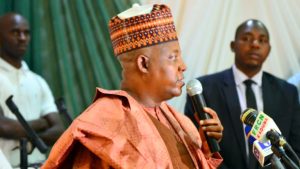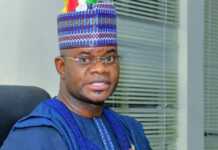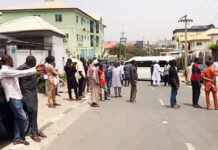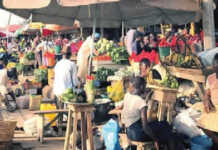 The European Union (EU) on Tuesday announced a grant of 143 million Euros to the Borno government State to enable the government implement nine key post-insurgency projects across the state.
The European Union (EU) on Tuesday announced a grant of 143 million Euros to the Borno government State to enable the government implement nine key post-insurgency projects across the state.
Tagged the ‘Borno Package’, EU officials said the grant is to support the state government in three main areas of Response, Recovery and Resilience in the next three years.
The fund is also to help the state build its resilience programme for enhanced food/nutrition security of internally displaced persons (IDP) and to provide basic services in the area of health, water, sanitation, sustainable energy and to enhance livelihoods and employment opportunities for communities affected by the Boko Haram insurgency.
The €143 million Euro grant is the third of such grants that has been offered to by the EU in the past one year.
Speaking at the official launching of the nine programmes, the EU head of cooperation, Kurt Cornelis, said the programmes would be implemented by nine humanitarian agencies that are already stationed in the state.
He said the implementation partners comprise Action Against Hunger, Alima, department for international development (DFID), Food and Agriculture Organisation (FAO), International Rescue Committee (IRC), Mercy Corps, Norwegian Refugee Council and United Nations Development Programme (UNDP).
Of the €143 million grant, the EU head of cooperation said 20 million Euros would go to the World Bank as fund to service the technical needs of the projects.
Mr. Cornelis said the EU was satisfied with the level of implementation recorded in the previous grants. He however said a monitoring office would be established to supervise the implementation of the latest grant.
He said the grant would be implemented under the coordination of Borno State Ministry for Reconstruction, Rehabilitation and Resettlement (RRR).
In his speech, the state commissioner for RRR, Babagana Umara Zulum, said the projects would be implemented mainly within Maiduguri and Bama towns.
He said apart from helping to strengthen the capacity of state government officials in post-conflict reconstruction and building of resilience amongst the people, the project would be implemented in such a manner that each of the nine humanitarian actors would handle specific area of needs.
“Th UNDP/ WHO is to intervene in 20 communities of Borno state by rehabilitating 20 primary schools, three secondary schools and provision of water in 20 communities and sanitation needs in some public health facilities; The NRC is to drill 28 stiff aquifer boreholes, 278 tube wells with pumping units in addition to supporting farmers with input supports. The FAO is to support about 70, 000 households with agricultural inputs, lives stocks and support for arid farming; the ACN, Alima and IRC are to provide basic health facilities, water and sanitation in some communities, as well as livelihood supports for the vulnerable ones.
“The Mercy Corps will provide grants for agricultural purpose, rehabilitate vocational training centres, and facilitate cash transfer for about 10,000 beneficiaries and rehabilitation of community assets.
The DWR will recruit about 10,000 youth for the sanitation of Maiduguri, Bama and Biu towns in collaboration with BOSEPA. The DFID is to provide solar electrification to some schools, health centres and water facilities and community centres;
He said the total package for the project is a grant and not loan to the Borno State government.
“Of the total amount, €123 million ((N50.4 billion) is for the rehabilitation and restoration of basic services, health, education, water, sanitation and livelihood, while the sum of €20 million (N8.4 billion) is voted for technical service managed by the World Bank”, said Mr Zulum.
The budget steering committee for the 143 million Euro grant was co-chaired by the Borno state governor and the state minister of budget and national planning, while the technical implementation committee is co-chaired by the Borno state commissioner for RRR and the ministry of Budget and National planning.
The Borno state governor, who was represented by his deputy, Mr. Usman Durkwa, commended the EU for coming to the aid of the state for the
third time.
He said the nine projects earmarked for implementation would go a long way in tackling the problems of the people especially those that would
soon be returning to their reclaimed communities.
He said “the Boko Haram crisis didn’t only displace our people but created over 50,000 orphans who are mostly girl-child.
“Government has built over 20 mega Schools for the education of this orphans within the capital city, while more schools are being built across the state capital to cater for the rising education needs of our people”.
Source: ( Premium Times )




